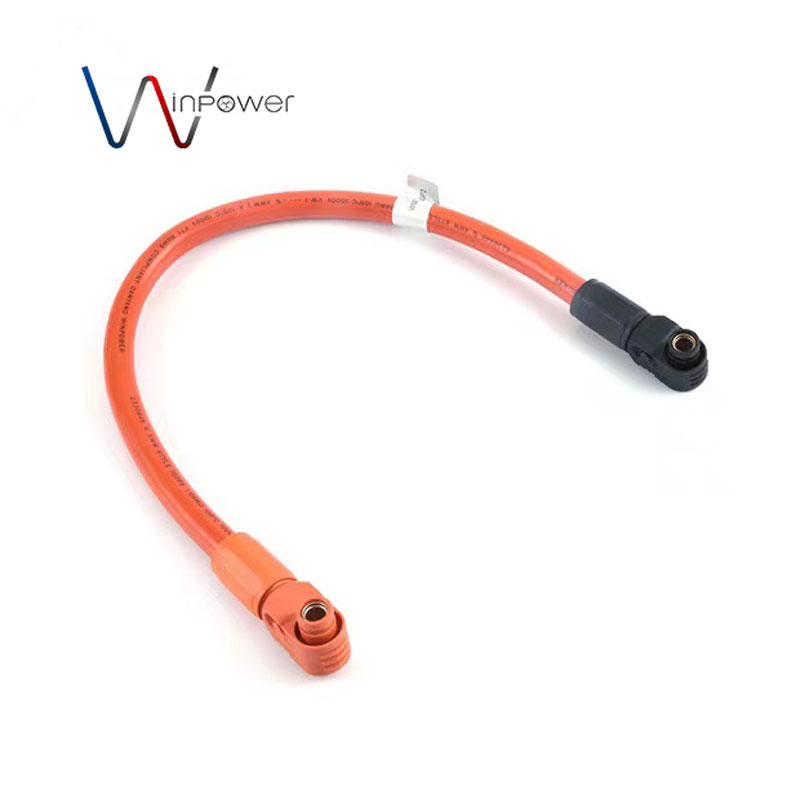Custom Inverter Harness
Product Description:
The Inverter Harness is a vital electrical component designed to facilitate the smooth and efficient transfer of power between the inverter and various system components in solar, automotive, and industrial applications. This harness ensures that the inverter, which converts DC (direct current) to AC (alternating current), operates effectively by securely connecting it to batteries, power grids, or other devices. Built for high durability and performance, the inverter harness is essential for reliable power conversion in demanding environments.
Key Features:
- High Conductivity: Made from premium copper or aluminum wires to ensure optimal electrical conductivity, reducing power losses and improving efficiency.
- Heat and Flame Resistance: Designed with high-quality insulation that withstands extreme temperatures and prevents overheating, ensuring safe operation under heavy electrical loads.
- Robust Construction: The harness features durable connectors and strong cable sheathing to protect against wear, vibration, and environmental factors such as moisture, dust, and chemicals.
- Vibration-Resistant Connectors: Equipped with secure, vibration-resistant connectors to prevent disconnection or signal loss in mobile or industrial applications.
- EMI/RFI Shielding: Advanced electromagnetic interference (EMI) and radio frequency interference (RFI) shielding ensures signal integrity, particularly important in sensitive power systems.
- Compact Design: Engineered for space-saving installation, the harness provides efficient organization of electrical wiring in tight spaces.
Types of Inverter Harnesses:
- DC Input Harness: Connects the inverter to the DC power source, typically a battery or solar panel, ensuring efficient power input.
- AC Output Harness: Facilitates the connection between the inverter and AC loads or the electrical grid, providing a stable power supply for various devices.
- Grounding Harness: Ensures proper grounding of the inverter system, preventing electrical faults and improving safety.
- Hybrid Inverter Harness: Designed for hybrid inverters that connect to both solar panels and battery storage, allowing seamless transition between energy sources.
- Three-Phase Inverter Harness: Used in industrial applications, this harness connects three-phase inverters to support high-power systems and large-scale operations.
Application Scenarios:
- Solar Power Systems: Ideal for use in solar energy systems, connecting the inverter to solar panels and batteries, allowing for the conversion of solar power into usable AC electricity for homes and businesses.
- Electric Vehicles (EVs): Used in electric vehicle systems to connect the inverter to the battery and electric motor, ensuring smooth conversion of energy for vehicle propulsion.
- Off-Grid Power Solutions: Essential in off-grid systems where inverters are used to power homes or equipment in remote areas, providing reliable energy from renewable sources like solar or wind.
- Industrial Power Systems: Suitable for industrial applications where inverters manage power for heavy machinery, ensuring stable power conversion in high-demand settings.
- Uninterruptible Power Supply (UPS) Systems: Used in UPS systems to provide backup power during outages, connecting inverters to batteries and power grids for uninterrupted operation.
Customization Capabilities:
- Custom Wire Lengths and Gauges: Available in various lengths and wire gauges to accommodate specific inverter types and power systems.
- Connector Options: A variety of connector types can be customized to fit specific inverter brands and models, ensuring compatibility and secure connections.
- Insulation Materials: Insulation materials can be tailored for enhanced heat resistance, moisture protection, or chemical resistance based on application needs.
- Color Coding and Labeling: Custom color-coded and labeled harnesses are available for easy installation, troubleshooting, and maintenance.
- Shielding and Protection: Custom EMI, RFI, and thermal shielding options can be added to protect the harness from environmental and electrical interference, ensuring long-term reliability.
Development Trends: The Inverter Harness market is continuously evolving to meet the demands of renewable energy, electric vehicles, and industrial automation. Key trends include:
- Integration with Smart Inverters: As smart inverters gain popularity, harnesses are being developed to accommodate advanced control systems and data transmission, supporting real-time monitoring and optimization.
- Lightweight and Eco-Friendly Materials: Manufacturers are increasingly focusing on developing harnesses with lightweight, eco-friendly materials to enhance energy efficiency and reduce environmental impact.
- High-Voltage Compatibility: With the rise of high-voltage systems in solar power and electric vehicles, inverter harnesses are being designed to handle higher power levels while maintaining safety and performance.
- Modular Harness Designs: Modular and easily upgradeable harness systems are becoming more common, allowing for flexibility in design and easier maintenance or replacement in the field.
- Enhanced Durability for Extreme Environments: Inverter harnesses are being developed with advanced insulation and protective sheathing for use in extreme climates, such as arid desert solar farms or cold storage facilities, ensuring reliable performance across diverse conditions.
Conclusion: The Inverter Harness is an indispensable component in any system relying on inverters for power conversion. Its flexibility, durability, and customization options make it ideal for a range of applications, from solar energy to electric vehicles and industrial power systems. As technology continues to advance, the development of smart, eco-friendly, and high-voltage inverter harnesses will play a crucial role in supporting the global transition to renewable energy and electrified transportation.
















